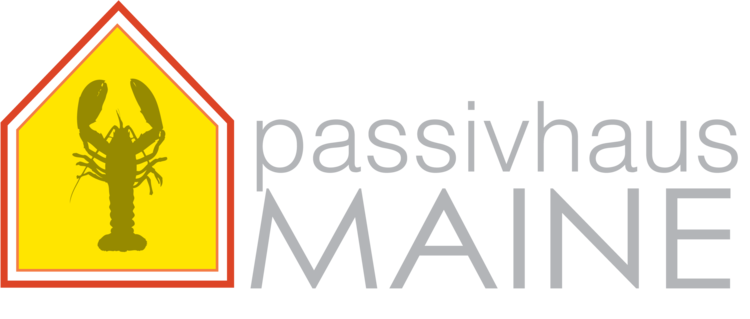ADVOCACY
Our mission is to support the passive house industry and community, while decreasing our reliance on fossil fuels. We work toward a no-carbon future where housing and heating are sustainable and accessible. That’s why we work with local and state governments to educate, offer guidance and consulting, help shape proposed legislation, and then publicize these legislative efforts throughout Maine. Read on to learn about some of our legislative efforts.
LD 1101
LD 1101 was born from passivhausMAINE’s retrofitMAINE project. Our work on the Energy Tag of MUBEC is meant to tilt the existing codes to increased efficiency and resilience of new buildings. For existing buildings, passivhausMAINE has found the challenges of retrofits to be overwhelming in cost, inconvenience and complexity. Adoption of LD 1101 increases the probability that efficiency measures actually take place with a low barrier, voluntary audit which prioritizes potential projects to increase a building's score and also points consumers to funding opportunities. We have a once in a generation opportunity for wide scale updating of the building stock both for mitigation and adaption to climate change.
The Legislative Committee on Energy, Utilities, and Technology (EUT) is currently considering LD 1101, a bill born from our very own retrofitMAINE project. The bill would create a voluntary home energy scoring system and an infrastructure for routine home energy audits.
Pros include:
Equity centered: transparency at sale, lowering operations costs, increasing building resilience, healthy interiors, durability in extreme weather events.
Voluntary
Consumer protections at points of sale
leveraging improvements for sellers’ benefit
increased participation in rebates, incentives and tax credits
decreased carbon emissions and costs for operations in the Single Family Home market.
Anonymous collection of carbon and building stock data to inform future building policy
Remote Audit is less costly, less workforce intensive- reserving workers for the actual retrofit work
Bolsters Clean Energy Workforce- either as auditors or retrofit construction.
Embracing this once in a generation opportunity to decrease carbon emissions and increase durability of Maine’s aged building stock
Building Stock improvement: Maine has some of the oldest building stock in the country, the highest proportion of buildings heated with #2 heating oil ($$volatile prices) and the oldest population in the country. Improvement to existing buildings is a top priority is a single bullet which improves multiple challenges.
Potential Cons
We’re cautious about requiring in-person audits to participate and would prefer remote audits. We think LD 1101 will increase the probability that efficiency measures actually take place, especially if energy audits are easy to access. Required in-person audits has potential to be a barrier to program uptake with few auditors currently in place. Programs can be developed to encourage this field. We prefer to see a remote audit option and focus workforce development on the retrofit field.
OVERVIEW: What does the bill do?
This bill directs the Efficiency Maine Trust to establish a voluntary home energy scoring system for residential buildings for the purpose of evaluating a building's energy efficiency and relative greenhouse gas emissions. The bill also provides requirements relating to home energy audits.
LD 1101 increases the probability that efficiency measures take place by providing a voluntary low-barrier audit which prioritizes potential projects to increase a building's efficiency score and also directs consumers to funding opportunities.
IMPACTS: Why does it matter?
Equity: Equity centered: transparency at sale, activating cost saving incentives, lowering operations costs, increasing building resilience, healthy interiors, durability in extreme weather events.
Climate Action: decreased carbon emissions and costs for operations in the Single Family Home market. Sistering with current rebate and incentive programs to encourage participation. LD 1101 represents both climate mitigation and adaptation.
Fiscal health: The audit will point to local, state and federal incentives. This program also provides anonymous data collection for future housing and building policy.
Economic Development: Bolsters Clean Energy Workforce- either as auditors or retrofit construction.
Quality of Life: Improved personal wellness with healthy interiors, predictable costs, comfort of an energy efficient home and resilience in extreme weather events.
LD 1656
We’re very proud of our work in 2022 to help craft and promote Maine’s LD 1656, “An Act To Promote Energy-efficient Affordable Housing.” This billed passed Maine’s legislature in 2022 and offers important funds for the construction of energy-efficient affordable housing.
The issue of housing access is central to our mission at passivhausMAINE. We’re excited that this bill also makes provisions to incentivize building multifamily residences, instead of single-family homes.
It's estimated that Maine needs about 20,000 more affordable housing units, and the housing the state does have accounts for about 20 percent of the greenhouse gas emissions.
Our friend, Representative Rebecca Millett, was a sponsor of the bill and said this legislation will help build 1,400 needed units in Maine.
For this bill, check out this NewsCenter Maine story.
As Maine goes, so goes the nation.
In May of 2023, our state was highlighted by Karine Jean-Pierre during a White House press briefing. The press briefing was organized around the administration’s convening on advancing clean buildings. This convening looked at creative policy pathways to more sustainable buildings around the country.
Specific mention was made of LD 1656’s “financing [of] Passive House Certified affordable housing.”
Maine Won’t Wait! And neither will we. From municipalities adopting MUBEC and the Maine Energy Stretch Code, to state-wide programs distributing new technologies, to individual homeowners and contractors making net-zero choices, there are myriad ways in which our advocacy is having an impact in Maine.
This is work at the nexus of housing access, social equity, personal health and climate protection. Want to learn how you can support this work? Click here!




